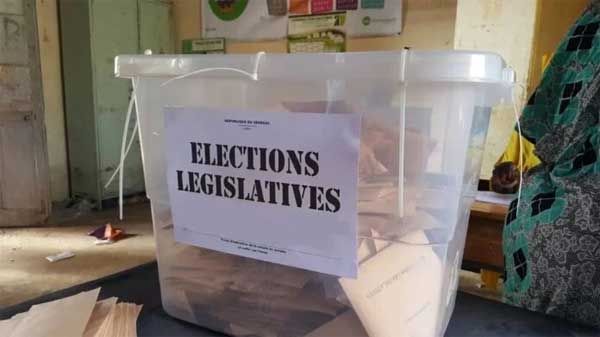Legislative Elections Set For 17 November

The early legislative elections on November 17, 2024, will be held with very short deadlines. Consequently, questions arise regarding compliance with the provisions of the Electoral Code (endorsement process, exceptional revision of electoral lists, amount of the deposit, etc.).
Early legislative elections in Senegal! The decision, taken yesterday by the Head of State, leads the country into an electoral « fast track ». The date of November 17, 2024 is set, without President Bassirou Diomaye Faye indicating the modalities and criteria for the endorsement of the lists of candidates for these early legislative elections. The electoral competition in Senegal, since the consensual « Kéba Mbaye » electoral code, has always been characterized by consultations between political actors, under the supervision of the Ministry of the Interior and the involvement of civil society organizations.
So far, experts and others interested in the electoral issue have mentioned the deadlines set by the Electoral Code for endorsement, which are one hundred and fifty (150) days.
Dissolution the National Assembly: Diomaye validates Sonko’s wish
Based on the announcement by the President of the Republic, stakeholders interested in the November election could find themselves with a very shortened deadline of 30 to 45 days to collect endorsements. And complete an electoral process that extends over a period of about sixty days.
The question of the amount of the deposit for the lists of candidates will be put on the table of electoral controversies. Political actors and independent candidates will « compete » without any revision of the electoral lists. An exercise that was supposed to allow citizens who have reached the suffrage age as citizens and to fulfil their civic duty on election day. As things stand, it is impossible to indicate the outline that the authorities will follow.
Travel Ban: Civil society calls for respect for the rules
There is also reason to question the material organization of the early legislative elections. The deadlines are extremely short, even if the country has an electoral system that has been tested on several occasions.
Certainly, complaints will be rife. Some among those who make up the political arena will continue to complain about the violation of the provisions of the Electoral Code. Others will not fail to deplore the fact that the regime’s supporters are not open to political dialogue and will use « electoral force » to grant themselves a parliamentary majority, on the evening of November 17.
By Mamadou T. DIATTA / mdiatta@lequotidien.sn

